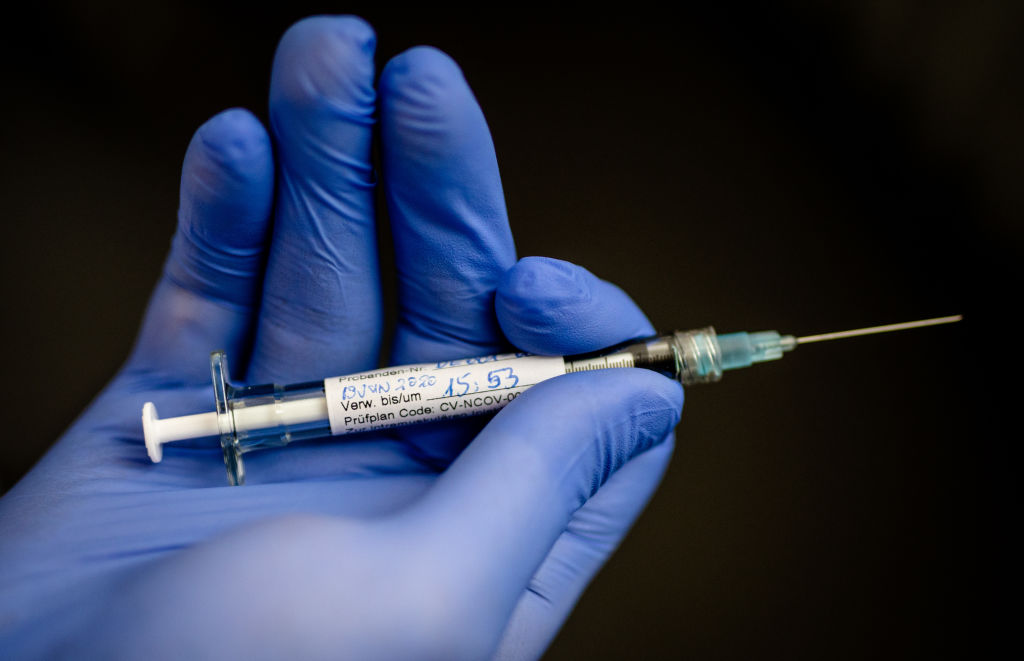Chinese workers injected with experimental Covid-19 vaccine inflict unknown risks on PNG

The tough stance taken by Papua New Guinea’s police commissioner on the 48 Chinese workers destined for the Chinese-run Ramu Nickel mine in PNG’s Madang Province gives an opportunity for the Chinese government to explain whether it’s using Chinese workers in PNG as test subjects for vaccine prototypes, and whether the workers were coerced or genuinely volunteered.
Commissioner David Manning, who is also the national emergency controller,
responded to news that the 48 workers had been vaccinated with an unproven Covid-19 vaccine before leaving China by cancelling another flight carrying almost 200 workers destined for various Chinese projects in PNG.
Both Manning and PNG Health Minister Jelta Wong have demanded that the Chinese ambassador explain why the workers were vaccinated and why PNG authorities were not informed until the issue had
been exposed in The Australian.
The opposition leader, Belden Namah, has
chimed in strongly supporting the police commissioner’s actions, insisting that PNG is not a testing ground for vaccines.
These events may well strain the China–PNG relationship and the health minister is clearly irritated at the lack of a prompt response from the ambassador.
Part of the response from Ramu Nickel is typical—publicity campaigns in Australian and PNG media and warnings that PNG’s actions might ‘harm relations between China and Papua New Guinea’.
What will harm relations between China and PNG is the lack of respect shown by the company and Chinese officials for PNG’s government and population, who, after all, were unknowingly sharing the risks in this Chinese vaccine experiment in their country.
The harm is being generated by Chinese actions; exposure simply allows that harm to be addressed. The incident means that other Chinese projects that involve Chinese labourers must now also disclose whether any of the workers involved are similarly being used to test experimental vaccines.
This is about whether the PNG government and people can trust the Chinese state-owned enterprises that are active in PNG or whether confidence can only be established by close monitoring and supervision of these projects and the workers involved.
Beijing is desperate to win the global race to develop safe, effective vaccines against Covid-19, but that’s no excuse for inflicting risk on the people of other nations without their knowledge and informed consent.
Relations between the Ramu Nickel mine management and local landowners and the provincial government have been strained for years.
There has long been a lack of transparency when it comes to the makeup of the workforce, not only at the Ramu Nickel but at any number of other Chinese-run projects in PNG, most of which are funded by unfavourable loans to the PNG government by the Exim Bank of China.
Manning has a unique opportunity to establish the status of the vaccinated workers. He can use the wide powers available to him under the Covid-19 regulations to examine passports, visas and work permits—something Australia could and should help him to do.
One of the necessary questions is whether the workers consented to being vaccinated, and whether that consent was given because of incentives offered or under pressure. Manning might well also ask whether there are plans for other Chinese workers to be injected with a vaccine that isn’t internationally recognised or approved by the PNG government.
It’s been
reported that China has been testing vaccines on military personnel and that some 30 ‘special volunteers’ at China’s SinoPharm have been voluntarily injected with experimental vaccines. But testing these vaccines on poorly paid skilled and semi-skilled workers who may feel compelled to agree is a deeper and more difficult ethical problem to contend with.
Examination of the backgrounds of these Ramu Nickel workers might be the start of ensuring that PNG standards for health, skills, qualifications, labour rules and immigration status are being met by Chinese-based mining and construction firms.
Questions that have long been asked about the integrity of the foreign workforce in PNG might finally be answered, and the conditions in place for China-sourced projects might be brought into line with the requirements that apply others, to PNG’s benefit.
The timing could hardly be better. PNG police and immigration officials have recently been raiding logging sites in the hunt for illegal foreign workers.
A clean-up of PNG’s visa and work permit system is to be welcomed. It is a project long delayed and longer overdue.
Australia’s engagement in such a process must be to provide the kind of technical and logistic support our neighbour needs.
It remains to be seen whether Manning will allow into PNG the almost 200 workers who were turned around after initially being given approval to work on projects for the PNG government and its state entities.
It’s hard to see that happening without greatly improved transparency and openness from Beijing that enables the integrity of companies’ operations to be established in accordance with PNG law and processes.
It’s been a long time since PNG ministers and officials have asked serious questions of the Chinese government about its workforce in PNG. That has now changed—and Beijing’s response is awaited with interest across Papua New Guinea.
 Print This Post
Print This Post